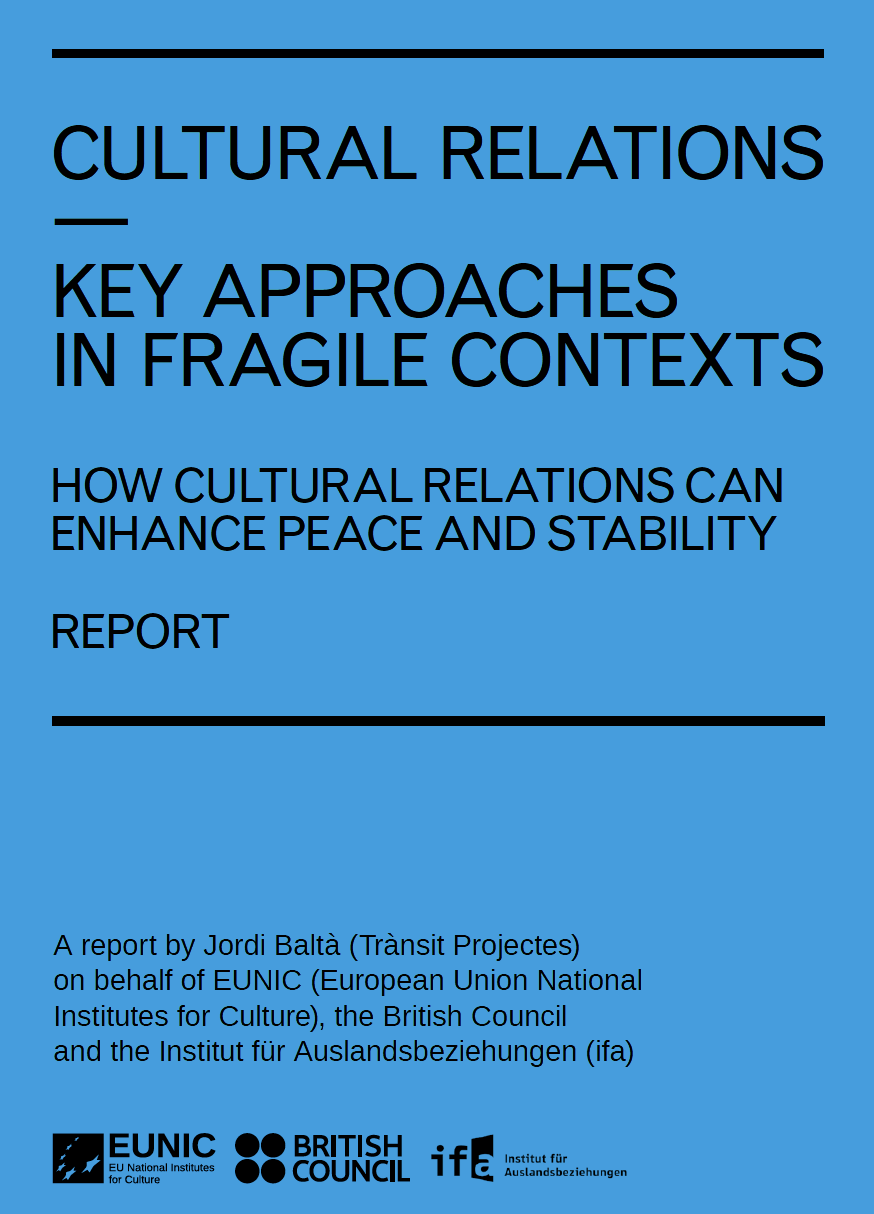
Cultural Relations - Key Approaches in Fragile Contexts Report Available
A report on Cultural Relations - Key Approaches in Fragile Contexts offers evidence and recommendations to the EU, EU Member States and other interested countries, EUNIC members and partners on how cultural relations can enhance peace and stability.

The study authored by Jordi Baltà, commissioned by EUNIC, ifa and the British Council was launched on Monday, 13 September 2021, as part of the Future Unlocked symposium and Senior Official Meeting organised by the Slovenian Presidency of the EU. The results and findings of the study were explored in a panel where the author was joined by EUNIC colleagues active in fragile contexts - Amalia Lizaur de López (AECID) and Björn Technau (Goethe-Institut Amman) in conversation with Oliver Rentschler, Director Strategic Communication and Foresight at the European External Action Service (EEAS).
This report aims to examine the linkages between cultural aspects, conflict and peace, with a particular focus on the place of international cultural relations in so-called ‘fragile’ countries and regions. An examination of eleven diverse examples of how cultural relations have addressed fragility, peace and stability in different contexts informs the analysis presented in the full report. Further to presenting the different ways in which cultural relations are connected to the five dimensions of fragility and the fostering of peace and stability, the report identifies a set of enabling factors and challenges to strengthen these connections. Conducting detailed research into this topic was one of the recommendations from the EUNIC Knowledge Sharing Workshop on working in fragile contexts in 2019.
Key Recommendations
The report advocates for:
- EU institutions, EU Member States, EUNIC members, international organisations, national and local authorities and civil society actors in the areas of arts, culture, democracy, development and conflict prevention and management should recognise the potential of integrating cultural aspects in approaches to peace, stability and development.
- These stakeholders should also strengthen the position of cultural aspects in the implementation of the 2030 Agenda, both in those areas where explicit connections with culture exist and in others to which culture can also contribute, as evidenced in this report.
- Steps should be taken towards pooling of resources and efforts, developing joint strategies on peace, stability and development at national and regional level which integrate cultural aspects alongside other relevant dimensions.
You can find all recommendations to the EU institutions, EU Member States and other interested countries, EUNIC and partners in the full report.
